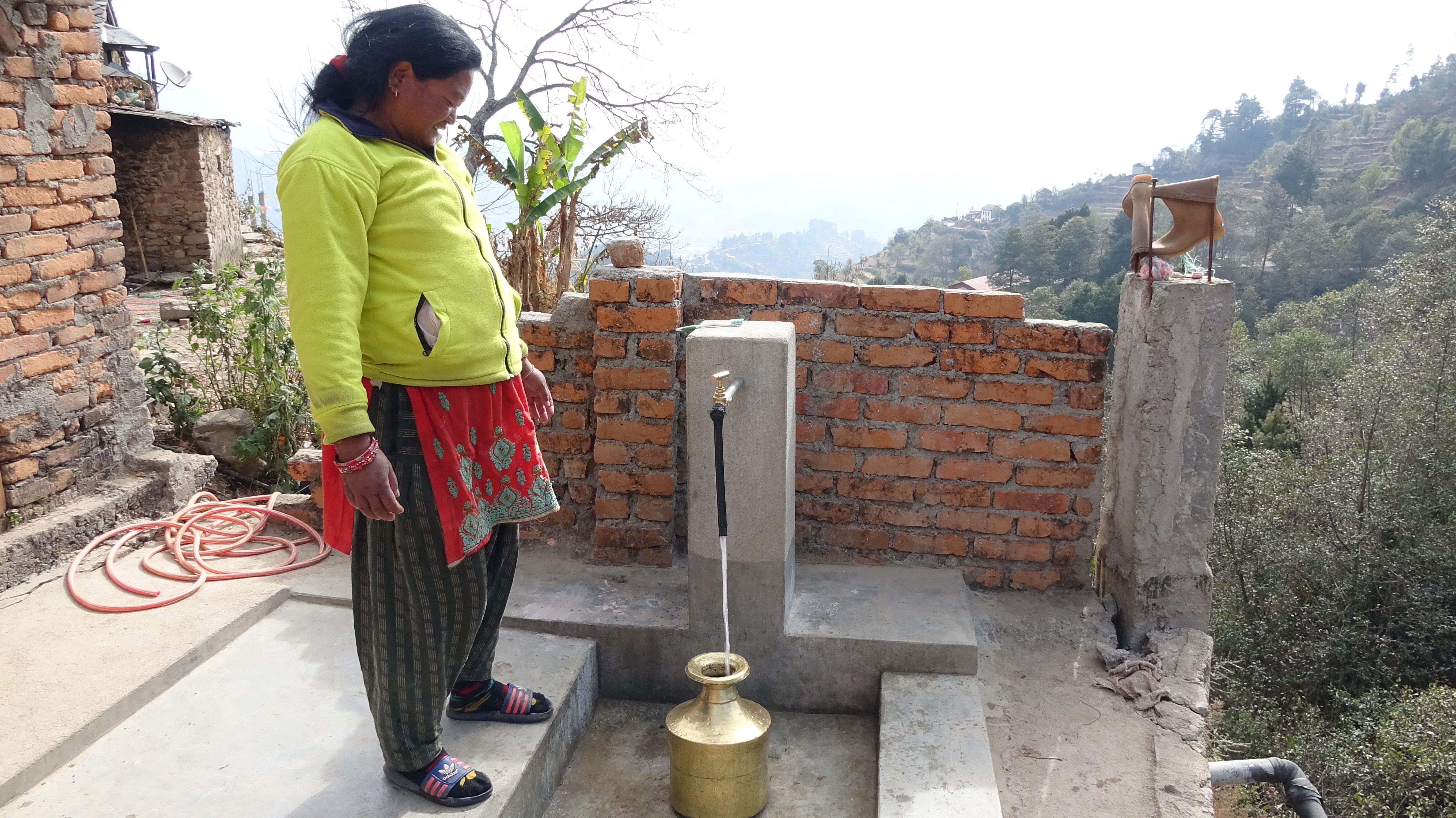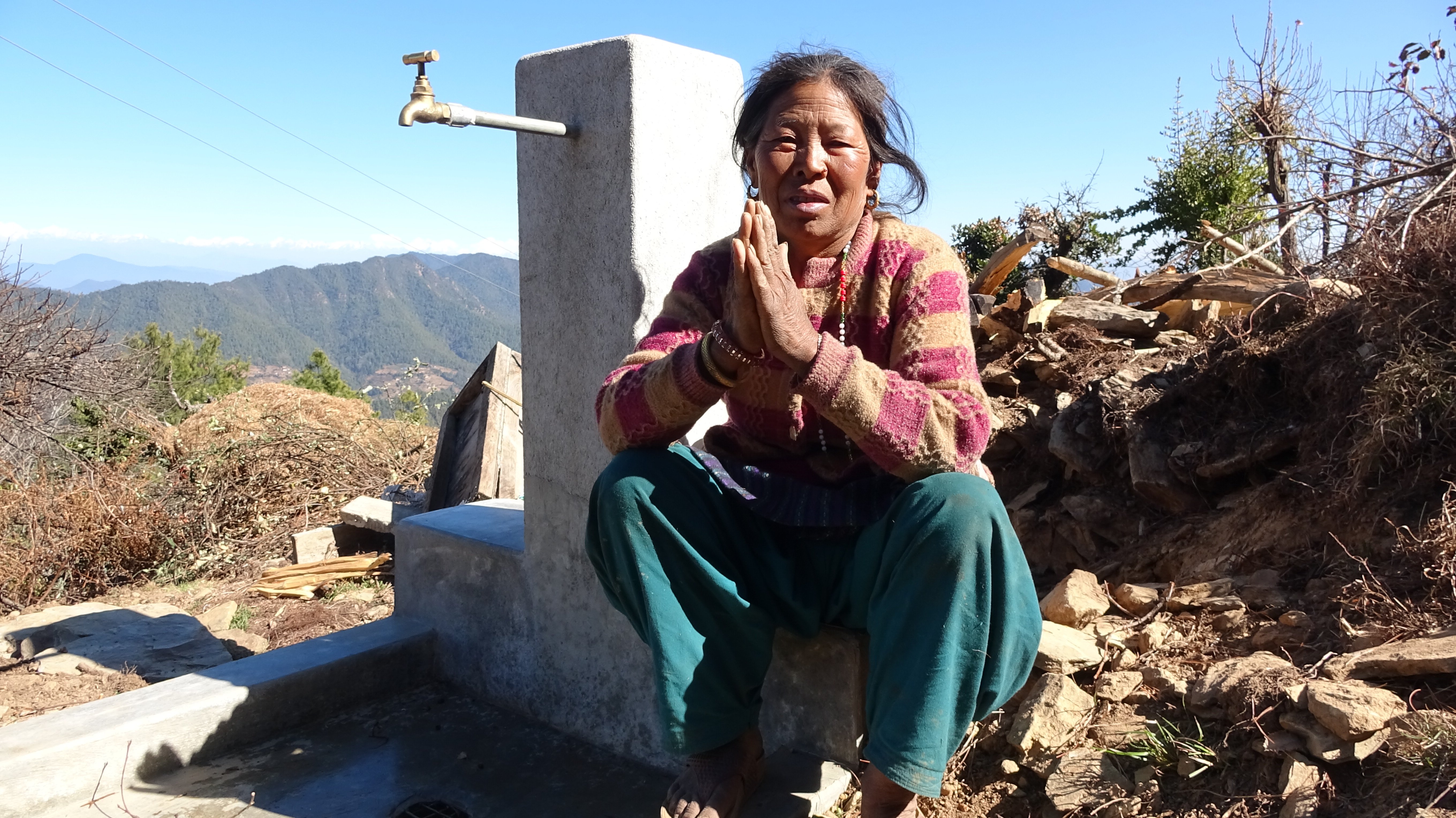The Lack of a Basic Need
Approximately 864 people reside in Mahankal in the Thaha Municipality of Nepal. Most of these people come from Tamang, an underserved indigenous community. Low literacy rates, few income opportunities, and low productivity have stagnated community progress, leading to a lack of basic facilities necessary to improve their lives.

Potable water scarcity was one of the major challenges of the community, especially for women who invest time collecting water for daily consumption. Indeed, most women must spend up to two hours a day gathering water due to issues of accessibility, quality, and cost. Additionally, children often miss school because they must help their parents fetch water. Furthermore, families residing in this area are dependent on subsistence farming, which hardly provides them with enough food throughout the year. The scarcity of water limits the community’s ability to improve their agricultural production to feed their families.
Working Together for Water
Seeing the success neighboring communities were having with CHOICE Humanitarian, Mahankal’s leaders and Thaha Municipality requested that CHOICE establish a water supply project. It was challenging to convince people the project would be a success; however, CHOICE involved the community from the start of the project. People gradually started helping, and soon community members were digging pipe trenches and hauling construction materials. Because of this support, the community was able to save money and later construct a multipurpose office building.
%20(1).jpg?width=5184&height=3456&name=Thadokhola%20(5)%20(1).jpg)
Water is supplied using gravity flow through three of the reservoir's constructions. Every family has a yard connection to the metered water system. The families each pay a monthly fee for regular system operation and maintenance.
The CHOICE team in Nepal, with funding from the dōTERRA Healing Hands Foundation, provided technical and financial support throughout the project. Thaha Municipality also gave necessary financial and technical support for the system’s completion. Community members contributed non-skill and semi-skill labor for digging trenches, hauling construction materials, and building tap stand. Because of local participation, the project was completed for less than the estimated cost; thus, additional structures were built, including a guardhouse.
Over 157 families of Mahankal, plus 7 community institutions (schools, temples, etc.), now have access to potable water. The community’s quality of life has improved significantly. For example, 30% of households have started gardens, over 90% of children attend school on time, morbidity from waterborne diseases has decreased by 70%, and women need not spend hours collecting water; rather, they spend their free time in income-generating and skill development activities.
A Water Tap to Honor Sanu’s Selflessness
Sanu Kanchhi Ghalan is a resident of Mahankal. Sanu, a widow, is 65 years old and has 15 family members. She wakes up early every day to collect a bucket of water for her home. Her large family has been surviving with just a single bucket of water each day for decades.
Sanu’s home was 65 meters above the highest point where water could be piped from a spring source. Because of the terrain, Sanu was worried that the water would not reach her home. Despite not having a guarantee that water would be supplied to her yard, she still contributed non-skill labor for the project.

CHOICE and local leaders discussed a potential solution for Sanu. Thankfully, necessary resources—including tanks and pumps—were gathered to supply water to her home through meter-connected tap stands. Sanu is happy and expressed her gratitude by stating, “Many thanks to the organizations and the local leaders who helped us have drinking water in our yard. They did not favor anyone and treated everyone equally. Even those who initially opposed the project have now begun to applaud it.”
Sanu continued, “I never imagined that someone would listen to our plight... Finally, our long-suffering has come to an end. It’s a great blessing to each one of us.”